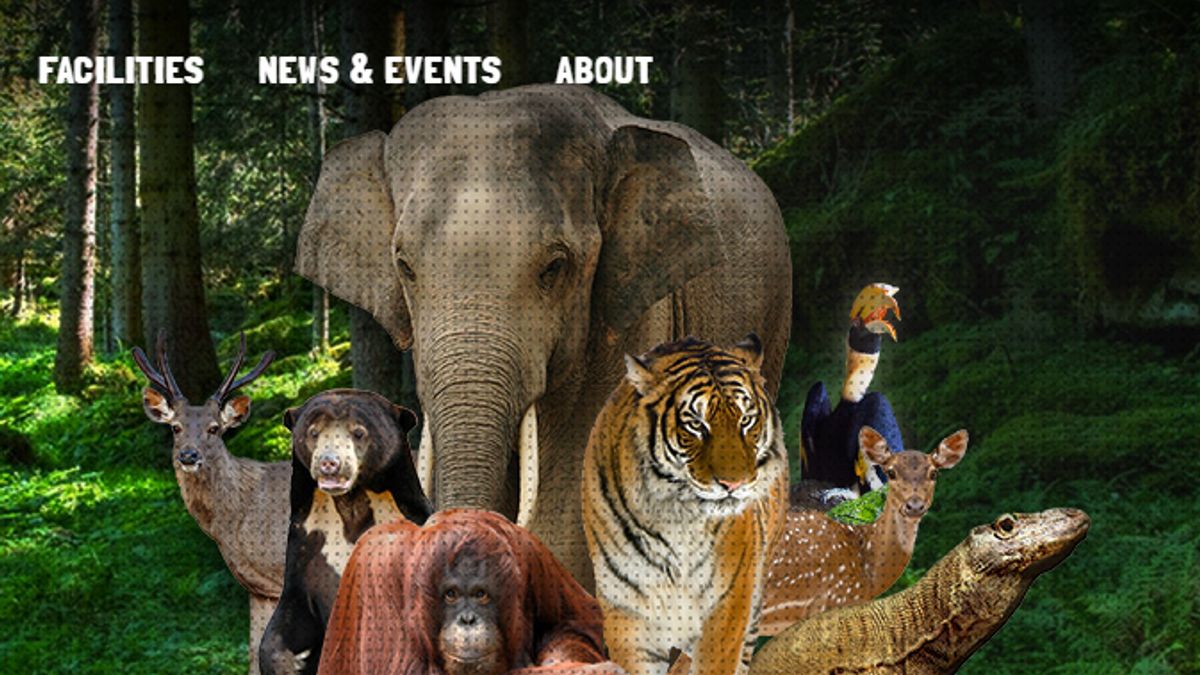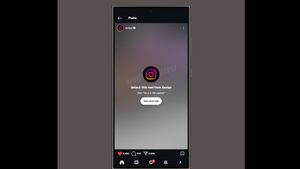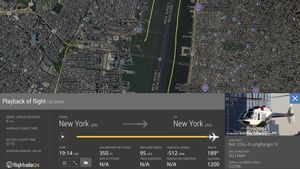JAKARTA - During the pandemic of the corona virus or COVID-19, several zoos began to experience a feed crisis for animals. However, this is not the case with Ragunan Wildlife Park. This is because the costs for animal feed are financed by the DKI Jakarta Regional Budget (APBD). Includes employee salary costs.
Head of the Ragunan Wildlife Park Promotion Unit, Ketut Widarsana, said that his party did not experience a food crisis problem for animals during the implementation of large-scale social restrictions (PSBB), as felt by the Bandung Zoo or Bandung Zoological Garden (Bazoga).
"Our animal feed is supported by the DKI Jakarta Regional Budget, because the Ragunan Zoo is under the city park and forest office of the DKI Jakarta Province," said Ketut, when contacted by VOI, in Jakarta, Monday, May 11.
Ketut claims, animal feed stock is in safe condition. This is because the procurement of animal feed in Ragunan Wildlife Park is obtained through an auction process by the DKI Jakarta Provincial Government. The auction winner will be responsible for providing animal feed for one year. Thus, pandemic conditions do not affect the distribution of feed.
"It's safe. Every day it will be sent as needed, in what volume, all the quality of the feed is checked. So if it's bad, it's not worth it to be returned to be replaced by the provider," he explained.
As is known, Ragunan Wildlife Park has extended the closure period to prevent the spread of COVID-19 until an indefinite time, however, the Ragunan management still maintains normal care for facilities and animals.
"I can't confirm when it will be opened, huh. Because the Ragunan side is still waiting for further directions from the leadership or the Governor of DKI Jakarta. Because I have also heard that the PSBB is being extended. So I cannot confirm how long Ragunan will be closed and when. opened, "he explained.
Ketut said that Ragunan Wildlife Park employees are still working in the field. However, the number is reduced by half every day to carry out the call to work from home (WFH) or work from home. This is also done to prevent the spread of the virus in the zoo area.
Meanwhile, for the care of animals during a pandemic, health workers are required to come in every day to check the health conditions of these animals.
"I suspect that the animals take turns. For example, they are both in cages, one enters, one is WFH. So they take turns monitoring and checking by the medical team, three doctors come in every day to monitor the condition of the animals so that their condition is in good health," he explained.
No Termination of Employment (PHK)Ketut said that even though his party has experienced a decrease in visitors since the beginning of the year due to the flood disaster that occurred in Jakarta, coupled with the pandemic conditions requiring the closure of the zoo, it is certain that there will be no termination of employment (PHK).
"Until now, there have been no layoffs, nor have they been sent home. WFH is different from those who are sent home, if WFH follows government regulations. So for the office admin they are indeed WFH. For the reduction of employees there has not been until now, because we also use the DKI Regional Budget," he said. he explained.
According to Ketut, the funds released from the DKI Jakarta Regional Budget to pay the salaries of Ragunan Wildlife Park employees are still running smoothly. So, his party has no problem paying salaries.
"Until now there has been no problem, it's still safe. Hopefully in the future it will run smoothly," he said.
The English, Chinese, Japanese, Arabic, and French versions are automatically generated by the AI. So there may still be inaccuracies in translating, please always see Indonesian as our main language. (system supported by DigitalSiber.id)











